Graham Reid | | 7 min read
Leon Russell and Elton John: I Should Have Sent Roses (from The Union)
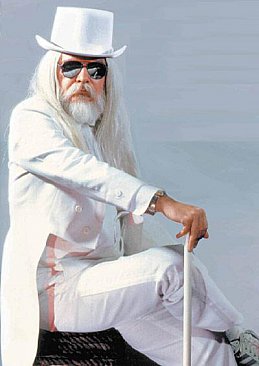
When Leon Russell left his home in Tulsa for Los Angeles after having played in teenage rock bands, a career in music wasn't what he was expecting. But in a couple of months he will receive two major awards: he will be inducted into the Rock and Roll Hall of Fame and the Songwriter's Hall of Fame.
Russell – now 68 --
spent time as an anonymous session musician in the Sixties with Phil
Spector, commanded a global audience with Joe Cocker and was a star
turn at George Harrison's Concert For Bangladesh alongside Bob Dylan
and others . . . then all but disappeared until last year's album The Union
with his old fan Elton John.
So those long overdue tributes are for a man who went to LA to . . .
“Actually, I went out there to get
into advertising. Then I discovered what a bloody business it was and
discovered session work by accident. I liked the comic ads that Stan
Freberg did on radio and though they were amazing. So that is what
took me there.”
What kept him was studio work with
Spector as the pianist in the famous Wrecking Crew, sessions for the Beach Boys and Frank Sinatra and numerous pop acts.
“Sometimes it was a small band and
sometimes a 60-piece orchestra and the big ones were written out, but
the smaller ones like the Beach Boys were all dictated by Brian
Wilson.
“The thing I remember the most about
the Sinatra sessions was there were an incredible number of policemen
around, at every door there were a couple of California Highway
Patrol guys. I wasn't quite used to that. I can't remember what we
played though.”
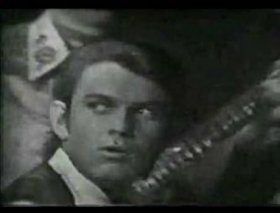 He also played piano on the famous
T.A.M.I Show (now on DVD, see here) and the weekly Shindig! pop show).
He also played piano on the famous
T.A.M.I Show (now on DVD, see here) and the weekly Shindig! pop show).
He also arranged the pop hits This Diamond Ring and Just My Style for Gary Lewis and the Playboys.
“That wasn't my cup of tea and they
were being produced by my partner Snuff Garrett, but it wasn't the
kind of thing I liked. I was anxious to not do that very much
anymore, it just seemed too fluffy.”
His breakthrough came when Joe Cocker
turned Russell's Delta Lady into a hit in 69, then had Russell – by
this time with a chest-length beard and long hair -- helm his band on
the famous and notorious Mad Dogs and Englishmen tour.
“I was playing on Joe's records [Joe
Cocker of '69] at the time and I thought it would be an idea to pitch
him some songs and after a couple of days I played him a few. But
leading bands is what I've done all my life, in one form or other.
I've done that now for over 50 years – when I played in nightclubs
and in the studio.”
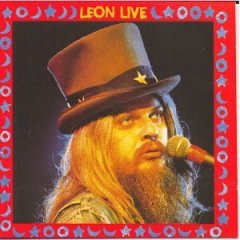 For a short time Russell was
inescapable: at the Bangladesh concert and on the subsequent album
(duetting with Harrison, playing with Badfinger, on his own medley) then
a solo career which in short order produced three albums in two years
then a triple-record live set.
For a short time Russell was
inescapable: at the Bangladesh concert and on the subsequent album
(duetting with Harrison, playing with Badfinger, on his own medley) then
a solo career which in short order produced three albums in two years
then a triple-record live set.
His songs were covered by the
Carpenters (Superstar), George Benson (This Masquearde), Ray Charles
and many others
Then he was suddenly gone.
By his Will O' the Wisp album in 75 (which contained the lovely Back to the island) the records were no longer selling as well and Life And Love of 79 (which included among other tracks the extraordinary Sweet Mystery) failed to chart in the US. Yet both contained superb songs.
Since the early Eightiess he hasn't troubled the charts although he always kept touring.
“I'm not very good at pubic relations, that's one of my shortcomings, so that was the missing ingredient for those. I didn't like to do interviews, and PR in general is just a little bit beyond me.
"I suppose I've got better and I have
people working for me now who set up interviews, and before I didn't
have that. So a lot of the upwards swing [in the 80s] I wasn't in on.
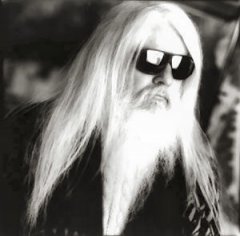 “I stopped for two years one time,
but for the rest of the time I was playing and before The Union I was
still making records but not on big labels, just on the internet.
“I stopped for two years one time,
but for the rest of the time I was playing and before The Union I was
still making records but not on big labels, just on the internet.
"I
think I put 14 out since the last one you heard of. Nothing new at
the moment, but that's just what I do all the time.”
But it was his old admirer Elton John who brought Russell back into the spotlight.
In the liner notes to
The Union he tells of his partner David Furnish listening to some
Russell songs and how he [Elton] got teary when he thought of this
great pianist/songwriter now languishing.
He contacted Russell and arranged to
meet up, then spoke to producer T-Bone Burnet to ask if would produce
an album of the two of them. Elton's lyricist Bernie Taupin also came
on board.
The result was an album which might
have peeled of from Elton John's Tumbleweed Connection with its songs
of Americana and the Civil War, melancholy ballads and a beautiful
love song I Should Have Sent Roses co-written by Taupin and Russell.
It went to number three on the US charts, entered the New Zealand
charts at 24 last November then dropped away.
“I hadn't spoken to Elton in over 30 years. He opened for me when he was first starting out and after that we didn't see each other. I was surprised to hear from him.
"We wrote
all the songs for the album although there were some lyrics Bernie
had written for another project.
"I was asking him for his stuff out of
the trash. I was thinking, 'How bad could his writing be that he
needed to throw away?' I Should Have Sent Roses was something he'd
written part of some years before for a project that didn't work out
and that was the first one he gave me.
“I was always so jealous of Elton
because I would sit around for months and wait for inspiration, and
Elton had Bernie handing him lyrics all the time. What a lucky guy.
“It comes easier these days but back
then I didn't know how to do it. Then I researched and read books on
how to write and figured it out.”
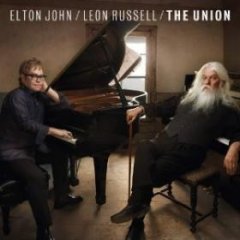 Russell says what many don't know about
Taupin is that he is an expert on American history and especially the
Civil War which is why he can write such convincing historical songs
as Gone to Shiloh on The Union.
Russell says what many don't know about
Taupin is that he is an expert on American history and especially the
Civil War which is why he can write such convincing historical songs
as Gone to Shiloh on The Union.
The album has brought Russell back into the public arena again, he's been interviewed widely (he still isn't comfortable or easy with it) and is playing concerts with Elton John.
And he's frank enough to concede that the album is what has
lead to the forthcoming awards and acknowledgements.
Leon Russell has always been there –
sometimes as an equal with the most famous musicians on the planet
and at other times playing uncredited on albums by others. Or just
slogging it out as a journeyman on the road through club dates.
Always a working musician.
“I've enjoyed all of it in one way or another and it's kept me from ever having to have a real job. It kept me from working in advertising.”
Interested in more along these lines, then check out this songwriter.
.
CONCERT REVIEW
Powerstation, Auckland. April 2011
Because we know keyboard players do their work sitting down, few would have been worried when Leon Russell – 69, walking with a cane – was gently guided to his seat at his electric keyboard.
The second he hit the opening chords of Delta Lady any doubts were assuaged.
Certainly he took a
backseat on Let the Good Time Roll (bassist Jackie Wessel
stepping up) and allowed guitarist Chris Simmons an excellent solo
spot on Robert Johnson's Kind Hearted Woman Blues, but
otherwise Russell was a human jukebox powering through
gospel-inspired rhythm and blues.
And although he made pit-stops in his
own catalogue (Lady Blue, the lovely Back to the Island
unfortunately demolished by thumping drumming, a gorgeous solo A
Song For You and Tightrope among them), he and his young
band rocked through Jimmy Reed's Baby What's On Your Mind; gave
McCartney's country-rocker I've Just Seen a Face a
honky-tonk makeover; took the mood down for Ray Charles'
Georgia (a standout, although Russell's vocal style, like
Dylan's, is to suggest a melody rather than sing it) and a medley of
Jumping Jack Flash, Papa Was a Rolling Stone, Paint It Black
and Kansas City.
Along the way he told anecdotes of
playing clubs at 14, listening to blues and gospel on his crystal set, drinking (“I was over my alcoholism by 18”), of his
friendship with Gram Parson who insisted he record this next song
(cue the Stones' Wild Horses), watching Bob Dylan write (cue A
Hard Rain's Gonna Fall) . . .
And by way of an encore – they didn't
leave the stage, one of them was too old to maybe get back up, he
said – a medley of crowd-pleasing Fifties rock'n'roll hits.
Russell is an entertainer, albeit one
who sits stock still behind his keyboards, and has played enough
small club gigs over the decades to not bother plugging the new
album.
He delivered for 80 minutes . . . then was gently ushered off. A legend.
.


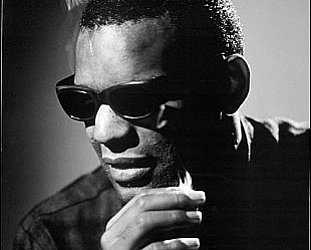
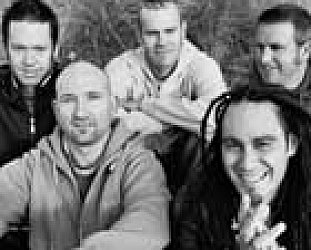
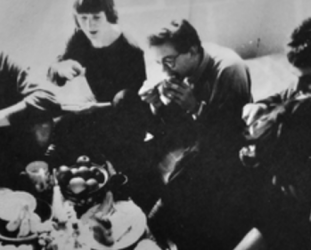
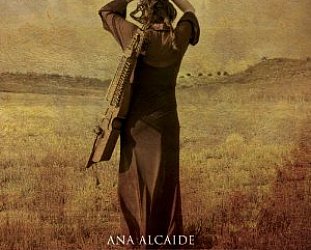
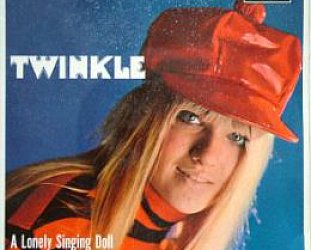
Jay Neilson - Jan 12, 2012
Leon could save rock music, people just have to be smart enough to listen. You're a smart man. Great article. Just wish I were visiting Tami at that point. She bought The Union for me last Christmas. A gift to the world it is.
Savepost a comment